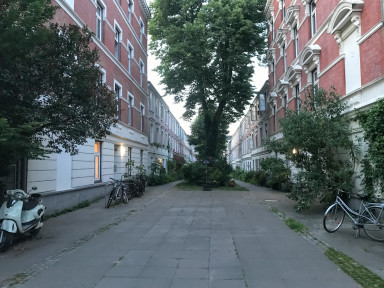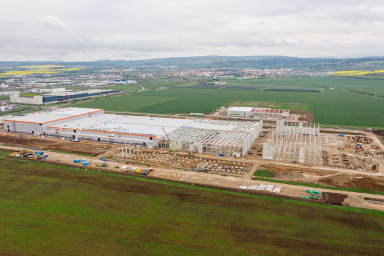How nothing happens
Non-pioneering cities and the role of nation-states in orchestrating urban climate mitigation
The scientific discussion about urban climate mitigation governance has taken particular account of pioneering cities and their potential to pursue more ambitious climate goals than those set at national levels. Little attention has been paid to non-pioneering cities, however, which pursue less ambitious or no climate goals at all. My PhD project aims to look at the urban climate mitigation governance system through their lens. It focuses on Germany and Belgium, particularly in the building sector. The project (1) investigates how different actors, particularly national governments, attempt to orchestrate urban climate mitigation; (2) comparatively analyses eight non-pioneering cities; and (3) conducts in-depth case studies of two of these.
- climate change
- mitigation
- urban climate governance
- multi-level governance
- polycentric governance
- policy integration
- municipal government
- professional agency
Context
Among the many crises that we face today, there is perhaps none more pressing than the climate crisis. For mitigating it, cities as major emitters and actors are essential, and many of them have started to take action.¹ In fact, the discussion around urban climate mitigation is marked by highlighting best practice examples: pioneering cities and their potential to surpass recalcitrant national governments.² But overall urban climate mitigation governance is not yet in line with the Paris Agreement’s 1.5˚C goal.
Aims
My PhD project therefore takes an opposite approach, aiming to learn from failure rather than success: It investigates the urban climate mitigation governance system through the lens of what I call non-pioneering cities. How and why do their municipal governments not take (sufficient) action? How do different actors within the governance system, particularly nation-states, react to this fact? What attempts do exist to orchestrate urban climate mitigation governance across all cities, including non-pioneering ones? Thus, I aim to shed light on the current blind spots of urban climate governance and reduce the research gaps related to non-pioneering cities as well as to their role within the (national) orchestration of urban climate mitigation governance.
Research design
I focus on the European Union and specifically Germany and Belgium as two ambitious national contexts with differing modes of carbon accounting, with Germany excluding and Belgium including consumption-based emissions. I further focus on the building sector as a manifestly local and particularly significant sector for climate mitigation. In a three-stage approach I: (1) investigate how different actors attempt to orchestrate urban climate mitigation, (2) comparatively analyse eight non-pioneering cities, and (3) conduct in-depth case studies of two of these. A particular focus is on administrative professionals’ agency. Case studies are carried out in a both embedded and extended way, i.e. investigating municipal governments internally and in terms of their relations to extralocal contexts.³ Besides literature, document, and data analysis, methods include qualitative interviews and participatory observation.
Supervisors:



